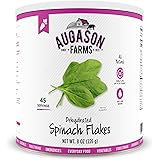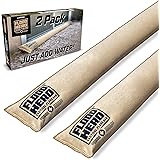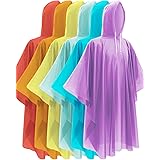1. Food Preservation Techniques
Canning and Jarring
Let me tell you, canning is one of those skills that once you master, you’ll wonder how you ever lived without it. I remember the first batch of strawberry jam I made; the satisfaction I felt was off the charts! It’s not just about throwing food into jars. It’s about understanding how to properly sterilize your jars and keep everything safe for long-term storage.
To get started, you’ll want a water bath canner, some mason jars, and of course, your choice of fresh produce. You can preserve seasonal fruits and veggies, making them last through the winter months. Once you get the hang of the basics, there’s a whole world of recipes and variations to explore!
Don’t be afraid to experiment. I’ve learned the hard way that not every jar is a perfect jar. Sometimes you might get a seal failure or a weird flavor combination, but that’s part of the learning process. The more you practice, the better you’ll get. Plus, you’ll impress your friends at potlucks with your homemade goodies!
Dehydrating Foods
Have you ever tried dehydrating your own fruits or veggies? It’s like bringing a little bit of summer into your winter pantry. I bought a dehydrator a few years back, and boy, was it a game changer. Dehydrating not only reduces spoilage but also shrinks the size of the food, making storage a breeze!
For those new to dehydrating, start with apples. Just slice them up, toss ‘em in the dehydrator, and pretty soon, you’ll have tasty, chewy snacks. It’s also immensely rewarding to see the transformation—it feels like nature’s magic trick!
And remember, dehydrated foods are great for camping trips too. You can pack a lightweight bag full of your homemade jerky, fruit chips, or veggie snacks, and you won’t feel weighed down at all. Just make sure you store them in airtight containers to keep them fresh!
Fermentation
Fermentation might sound complicated, but trust me, it’s one of the funkiest adventures in prepping you’ll ever dive into. I started experimenting with sauerkraut and kimchi, and what a wild ride it’s been! Not only is fermenting a fantastic way to preserve food, but you’re also adding probiotics that are great for your gut health.
To ferment, all you need is some fresh cabbage, salt, and a bit of patience. The process takes a week or two, but the wait is oh-so-worth it. You’ll find yourself reaching for those tangy bites on everything from sandwiches to salads.
== > What if ... Get a FREE Subscription to PREPARE
As you get comfortable, branch out to other foods like pickles or even fermented beverages like kombucha. The world of fermentation is vast, and there’s so much to explore. Plus, it’s a conversation starter—nothing like sharing a jar of homemade pickles to get people talking!
2. Basic First Aid and Emergency Medical Skills
CPR and First Aid Basics
When it comes to emergencies, I can’t stress enough how important it is to know CPR and the basics of first aid. I took a class a few years ago, and I felt like I gained superpowers. Knowing how to respond in a critical moment can literally save someone’s life. Plus, it’s a skill that everyone should have—seriously!
The class I attended covered everything from chest compressions to using an AED. The hands-on practice made a huge difference and gave me the confidence I needed. It’s daunting at first, but practice makes perfect. Find a local class and get started; you won’t regret it!
In addition to CPR, learn how to treat common injuries like cuts, burns, and sprains. A well-stocked first aid kit is essential. I keep a comprehensive kit at home and in my car. You never know when you might need it, and being prepared is half the battle!
Wound Care and Infection Prevention
Once you get a handle on basic first aid, understanding wound care is next on the list. You’ll want to familiarize yourself with how to clean and dress a wound properly. I remember treating my friend’s cut after a day hiking; knowing what to do made me feel like a pro!
Cleaning a wound is crucial. Use clean water and gentle soap—avoid harsh chemicals that can impede healing. After cleaning, keep the wound covered to protect it from dirt and bacteria. The right supplies, like sterile gauze or adhesive bandages, are essential to have on hand.
And don’t forget to keep an eye on your wound for signs of infection. Redness, swelling, and pus are all bad news. In cases of infection, it’s important to know when to seek medical help. Keeping fresh supplies and some antiseptic on hand can make all the difference!
Understanding Common Illnesses and Treatments
Knowledge is power, especially when it comes to understanding illnesses. It’s vital to familiarize yourself with common ailments and their treatments—think flu, allergies, or food poisoning. I dove into some research and discovered so much about how I can care for myself and loved ones with a few natural remedies!
Having a couple of go-to treatments for common issues can make life a lot easier, especially in emergency situations when you might not have access to a doctor. Herbal remedies, over-the-counter medicines, and simple home care practices can go a long way.
Cooking up a little ginger tea for nausea or using honey for coughs is not just old-wives’ tales. These remedies actually work, and it’s rewarding to learn how to care for yourself naturally. Just remember, it’s always smart to consult a healthcare professional when needed!
3. Self-Defense Skills
Physical Self-Defense Techniques
Let’s talk about self-defense. I signed up for a self-defense class a couple of years back, and it opened my eyes to a whole new realm of confidence and awareness. Knowing how to protect yourself physically is empowering. You learn not just techniques, but also how to assess a situation before it escalates.
Basic techniques are often straightforward—things like how to break free from a hold or where to strike an attacker. When you practice these moves regularly, they start to become second nature. The instructors always emphasized that the best defense is avoiding conflict whenever possible.
For me, it was also about building self-awareness. Being conscious of your surroundings can significantly reduce the chances of getting into a bad situation. Always stay alert and trust your instincts; they’re your best defense!
Situational Awareness
Situational awareness is your sixth sense in prepping. This is all about being aware of your environment and recognizing potential threats before they become real dangers. I’ve learned to keep my head up, scan my surroundings, and stay alert, especially when I’m out and about.
Keeping an eye on people and unusual behavior is key. If something feels off, it probably is. You’ll develop an instinct for discerning when a situation feels uncomfortable, and that can help you avoid trouble altogether. I cannot stress how important this skill is for any prepper.
Practicing mindfulness can also enhance your situational awareness. By being present and conscious of what’s going on around you, you will sharpen your instincts. You’re not being paranoid—you’re being prepared.
Conflict Resolution Skills
Lastly, let’s discuss conflict resolution. It’s super critical when tensions rise, and it’s something I’ve had to learn the hard way! Sometimes, the best move is to talk things out rather than getting physical. I’ve found that having a few de-escalation techniques up my sleeve is incredibly useful.
Get Preparedness and Self-Reliance Tips. Subscribe Now!
When faced with a conflict, staying calm is the first step. Maintain a neutral tone and body language; this can set the tone for a more constructive conversation. I often remind myself to listen actively and seek to understand the other person’s perspective—even if I don’t agree with it.
Remember, walking away from a confrontation can sometimes be the best choice. It’s worth building these skills because they can help prevent situations from getting out of hand. Plus, they can be applied in numerous aspects of life, from personal relationships to workplace scenarios.
4. Fire Starting and Basic Survival Skills
Fire Starting Techniques
Ah, the beauty of fire! There’s something primal about gathering around a flame, but knowing how to start one in the wild is a must-have skill. I’ve dabbled in a few methods, and each one has its unique charm and benefits. From matches to flint and steel, being able to spark a fire can make or break your outdoor experience.
One of my favorite techniques is using a fire starter kit with dryer lint and waterproof matches. It’s super easy and works every time. Just gather your tinder, place it under some kindling, and light it up. Pretty soon, you’ll have a cozy fire going. But remember, safety first! Always have a bucket of water nearby.
Also, learn how to read fire behavior. Understanding how wind and moisture affect your flame can enhance your fire-starting skills. It’s not just about ignition; it’s about maintaining it. Trust me, you’ll feel like a survival wizard once you master this skill!
Basic Shelter Building
When you’re out in the wild, knowing how to build an adequate shelter can be a lifesaver. During one of my camping trips, I had to hunker down due to unexpected weather, and I was so glad I’d practiced this skill. The key is to use natural materials around you and understand the local environment.
Start by finding a suitable location—avoid low spots that could collect water, and look for trees that can provide support. There are plenty of types of shelters, like lean-tos or debris huts. Being resourceful is part of the fun!
Once you’ve constructed your shelter, make sure it’s insulated and protected against the elements. Use leaves, branches, or anything you can gather to create layers. The difference between feeling cozy and freezing at night can really come down to how well you’ve built your shelter!
Water Purification Methods
Water is life, and I can’t stress enough how crucial it is to know how to purify it. I’ve learned through trial and error that drinking untreated water from streams can lead to some nasty surprises. Luckily, there are plenty of methods to ensure you’re drinking clean, safe water.
One of the simplest methods is boiling water. A rolling boil for a minute or two can kill most pathogens. However, if you’re in a pinch and don’t have a way to boil water, consider using water purification tablets or filters. I often carry a small filter in my backpack; it’s lightweight and extremely handy!
Learning about solar water disinfection is another cool method. You can fill clear bottles with water and place them in direct sunlight for several hours. UV rays help in killing harmful bacteria. It’s sustainable and can be a fun activity on a sunny day in the wild!
5. Gardening and Sustainable Living
Starting Your Own Garden
Gardening has been one of the most fulfilling skills I’ve ever picked up. Getting my hands dirty in the soil has taught me so much about patience and nurturing life. I started with a small patch in my backyard, and before I knew it, I was harvesting fresh veggies!
Begin with easy-to-grow plants like tomatoes, peppers, or herbs. Don’t overthink it! Just grab some seeds, a few pots, and a bit of quality soil. Watching those little seeds sprout and grow is pure magic. It’s also a great way to reduce your dependency on store-bought produce.
As you get more comfortable, explore companion planting. Certain plants thrive when grown together. It’s like nature’s little team effort! Not only does it help yield a better harvest, but it also keeps pests at bay. You’ll soon learn that gardening is about trial and error, but with every bloom, you’ll feel a sense of accomplishment!
Composting
Composting is like giving back to the earth. It’s an excellent way to repurpose kitchen scraps and yard waste, reducing what ends up in landfills. Starting a compost bin might feel a little overwhelming at first, but once you get a hang of it, it’s simple!
Begin by collecting organic waste—things like vegetable peels, coffee grounds, and even eggshells work great. Layer your greens (nitrogen-rich materials) with browns (carbon-rich ones). Keep it aerated and moist, and before you know it, you’ll have rich soil that your garden will thank you for!
Plus, composting is fantastic for your plants. It enhances soil fertility and promotes healthy growth. I find it incredibly satisfying to see my waste transformed into something so beneficial. It’s one of the little ways we can contribute positively to the planet!
Self-Sufficiency Practices
Finally, let’s touch on self-sufficiency. It’s about making conscious choices to reduce dependence on external resources. I started small—growing my own food, learning to fix things around the house, and even sewing! Each step towards self-sufficiency feels empowering.
Learning basic home repairs or even DIY projects can save money and enable you to rely on yourself. Plus, it’s a lot of fun. I’ve tackled everything from fixing a leaky faucet to building simple furniture, and it feels amazing knowing that I can handle basic challenges.
Furthermore, exploring alternative energy options, like solar panels, can give you more control over your energy usage. Embracing self-sufficiency isn’t an overnight journey, but each little step builds confidence and independence. It’s liberating to know you can take care of yourself and your loved ones in times of need!
FAQs about Top Skills Every Prepper Needs to Learn
1. Why is food preservation important for preppers?
Food preservation allows preppers to store food safely for long periods, ensuring they have access to nutritious meals during emergencies or shortages. It reduces waste and maximizes the harvest from your garden or local produce.
2. How do I start learning first aid?
Look for local first aid and CPR courses. Many hospitals and community centers offer classes, and there are numerous online resources available as well. Practicing these skills regularly will help you feel more confident in emergencies.
3. What are some easy self-defense techniques I can practice at home?
You can start with basic strikes, such as palm strikes or knee kicks. There are tons of online tutorials and videos that illustrate these techniques. The important thing is to get comfortable with movement and practice regularly!
4. Is it hard to start a garden if I have no experience?
Nope! Starting a garden can be straightforward. Begin with plants that are forgiving and easy to grow. Many resources are available for beginners, including local gardening clubs and online forums.
5. How can I incorporate sustainable living into my lifestyle?
Start small by implementing simple changes—reduce plastic usage, start a compost bin, or try growing a few plants. Every little step counts, and over time, you’ll see significant changes in your lifestyle and impact on the environment.






